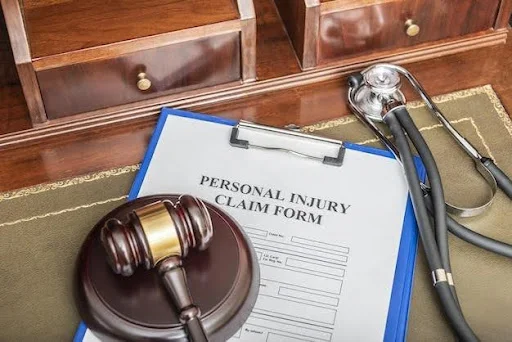Every personal injury claim varies due to the nature and intensity of the injury. These factors impact the value of compensation one could receive. When you suffer from a personal injury because of someone else’s negligence, you must take steps that will maximize your potential compensation.
No doubt, the aftermath of a personal injury is devastating and leaves a lasting impact on life. So, if you’re overwhelmed by emotional and financial expenses and want to learn how to navigate the tactics of the insurance company, this guide has some proven expert tips to maximize your compensation.
Read on to explore nine smart tactics to maximize your personal injury compensation effectively:
1. First, Document Everything Related To the Accident
To get started, the first and foremost thing that can maximize personal injury compensation is documenting everything related to the accident. This will include taking pictures of the accident scene and writing down the situation. You can also record the details in a voice memo.
Moreover, consider capturing your injuries and collecting the details of witnesses around the scene. This information will serve as crucial evidence that will support your claim by strengthening your case.
This way, you will have all the substantial information and all the essential evidence to prove that you aren’t at fault. This will result in maximizing the chances of receiving heftier compensation from the other party.
2. Seek Immediate and Proper Medical Attention
Moving forward, once you have captured and documented the details of the scene, you must seek immediate medical attention. The earlier you will seek medical attention, the more timely your injuries will be addressed.
Moreover, this way, you can get an accurate medical record explaining all your injuries. This medical document will later help determine the value of your claim. While you are getting medical attention after an accident, consider following the doctor’s recommendations and attending all the medical appointments.
3. Understand the Extent of Your Claim
When it comes to maximizing your personal injury compensation, you must understand the full extent of your claim. When you’re more aware of the damages you have been through, you can better put a value on the recovery.
Therefore, all the factors, including economic damages, medical expenses, loss of wage, and property damage, must be assessed to estimate the value of compensation.
This way, you can ask for compensation that will help you recover faster and get back to everyday life.
4. Leverage the Expertise of a Personal Injury Lawyer
It may be simple to estimate a random amount for the compensation that includes all the expenses. But when it comes to personal injury claims, you have to provide proof of your injuries, including the extent of the damages, to support your claim.
This can often lead to complications in your case as well. Therefore, it is wise to contact the best and most reputed law firm, such as Allen Accident & Injury Attorneys, to offer you legal representation for your case.
This way, you can leverage your legal expertise and knowledge in negotiations to maximize your personal injury claim.
5. Avoid Accepting a First Settlement Offer
There are a number of personal injury victims who consider accepting the first settlement offer from an insurance company to prevent complications in the case. This initial offer may seem like covering most of the damage. But it is the lump sum that can merely help you to recover.
Therefore, you must avoid accepting the first settlement offer by the insurance provider when they contact you. Don’t try to uncover any details of the accident, and contact your lawyer to evaluate the offer and find out whether it is fair or reasonable for you.
6. Be Cautious About Social Media Activity
In this digital realm, everyone likes to share their experiences online with their audience. Some might share their incidents to get empathy, support, or fame from the audience. There is nothing bad in sharing the details of an accident when you want to educate people about it.
However, as you’re planning to maximize your personal injury compensation, you need to be cautious about sharing any case-related details online. You will never know when the opposing party may get the information related to the accident and use it against your claim.
This can harm you with significant loss. Therefore, avoid sharing any details or evidence online related to your case.
7. Beware Of the Impact on Your Case
Your conduct during the personal injury case can have a significant impact on the outcome and the compensation you will receive. Therefore, you need to act responsibly during the trials and avoid contributing to any activity that can impact your injury claim.
Any negligence or bad behavior from your end can be perceived as a reason for the accident. That’s why try to keep your cool and act in your best interest during the legal representation.
8. Stay Informed About the Process
It is never easy to navigate the personal injury claims process, especially when you’re planning to maximize your compensation. However, by staying informed about the legal process, you can better familiarize yourself with the status and prepare for the next steps.
This way, you can make informed decisions that will result in preventing common mistakes leading to reducing your claim value.
Identify the Future Damages of the Claim
Many people make the mistake of estimating their current medical condition when seeking personal injury compensation. However, there are always some after-signs of damage that appear in the near future.
Therefore, it is advised to consider estimating the cost of your future medical expenses for recovery. For this purpose, you can consult with a health specialist to assess your condition and the extent of your injuries. By considering medical tests, you can get the documents and record of the injury.
This way, you can include all the expenses in your compensation claim with proof to receive a deserving value out of it. Now, you can ask for the compensation that will cover your present and future damages.





